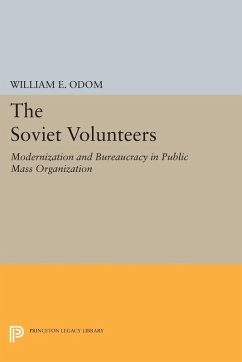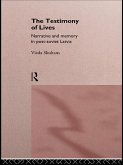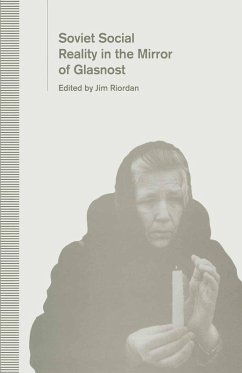Founded in 1927, the Society of Friends of Defense and Aviation- Chemical Construction, or "Osoaviakhim," became the largest mass voluntary association in the Soviet Union before World War II. Conceived in Bolshevik rhetoric about the creativity of the toiling masses, this novel organizational scheme gradually acquired bureaucratic substance and played a significant role in making the civilian masses administratively accessible for elementary programs in military training and chemical and aviation technology.
William E. Odom's study of Osoaviakhim in its first decade seeks not only to recount the history of its development, but, more importantly, to demonstrate that the Soviet experience can be analyzed using the language and concepts of Western social science. In particular, the author argues that concepts from organization theory offer promising opportunities to relate Soviet area studies to the broader concerns of comparative politics, and that middle range generalizations about politics within bureaucracies may prove very helpful in explaining "who gets what, when, and how" in the Soviet polity.
Originally published in 1974.
The Princeton Legacy Library uses the latest print-on-demand technology to again make available previously out-of-print books from the distinguished backlist of Princeton University Press. These editions preserve the original texts of these important books while presenting them in durable paperback and hardcover editions. The goal of the Princeton Legacy Library is to vastly increase access to the rich scholarly heritage found in the thousands of books published by Princeton University Press since its founding in 1905.
William E. Odom's study of Osoaviakhim in its first decade seeks not only to recount the history of its development, but, more importantly, to demonstrate that the Soviet experience can be analyzed using the language and concepts of Western social science. In particular, the author argues that concepts from organization theory offer promising opportunities to relate Soviet area studies to the broader concerns of comparative politics, and that middle range generalizations about politics within bureaucracies may prove very helpful in explaining "who gets what, when, and how" in the Soviet polity.
Originally published in 1974.
The Princeton Legacy Library uses the latest print-on-demand technology to again make available previously out-of-print books from the distinguished backlist of Princeton University Press. These editions preserve the original texts of these important books while presenting them in durable paperback and hardcover editions. The goal of the Princeton Legacy Library is to vastly increase access to the rich scholarly heritage found in the thousands of books published by Princeton University Press since its founding in 1905.
Dieser Download kann aus rechtlichen Gründen nur mit Rechnungsadresse in A, D ausgeliefert werden.









